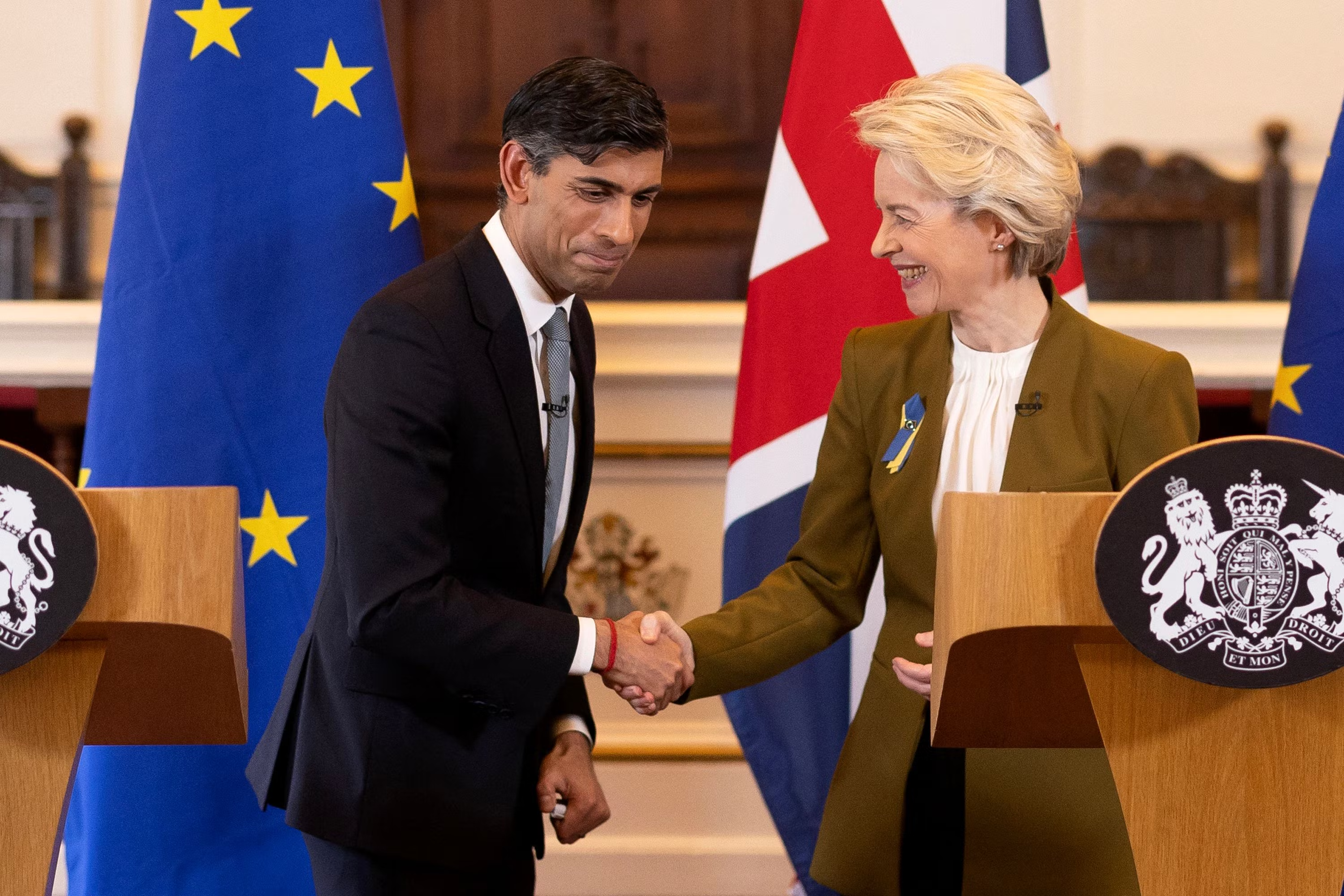
A recent poll conducted by Savanta revealed that a significant number of voters believe that Brexit is responsible for the current shortage of fruits and vegetables in supermarkets. Specifically, 57% of those surveyed pointed to Britain's departure from the EU as the cause of the problem. This sentiment is in line with the concerns expressed by many industry experts who have warned that Brexit-related issues such as labor shortages, customs delays, and transport disruptions could lead to supply chain disruptions and food shortages. However, some government officials have argued that the current shortages are due to other factors such as extreme weather conditions and global supply chain disruptions caused by the Covid-19 pandemic.
According to the survey, only 36% of respondents believe that Brexit is not the cause of the ongoing shortages in UK supermarkets. Furthermore, the poll found that 57% of those surveyed had personally experienced shortages of fresh produce, while 40% reported being unaffected. Although unusual weather conditions in Spain and North Africa have been cited as one factor contributing to the shortage, farming campaigners and food experts have argued that Brexit is primarily responsible for the acute shortage in the UK. These experts dismiss the idea that Spanish weather is solely to blame, describing it as "absolute nonsense."
School meal providers have cited "extreme shortages" and "unviable costs" as the reasons why certain items, such as lettuce, tomatoes, and cucumbers, are no longer available on school menus. In response to this, ministers are working closely with schools to try to minimize the impact of these shortages. Caterlink, one of the UK's largest school meal providers, recently sent an email to primary schools stating that certain fresh goods would be unavailable for two weeks starting from March 1st.
However, Cabinet Minister Chris Heaton-Harris has rejected the idea that Brexit has had a negative impact on the UK economy, stating that the evidence shows that Britain is still a growing economy and is doing well. When asked for evidence to support his claim, Heaton-Harris pointed to the country's overall economic performance.
The Independent conducted a new poll which showed that a large portion of the public are in favor of the type of agreement made between Rishi Sunak and the EU to resolve the Northern Ireland Protocol dispute after Brexit. Specifically, 44% of voters supported reaching a "compromise" with Brussels to end the disagreement, while only 29% were against it, according to a survey conducted by Savanta before the announcement of the Windsor Framework by the Prime Minister. The poll also revealed that there is significant support for reducing the checks on goods being transported between Great Britain and Northern Ireland, with 59% in favor and 21% opposed. However, there was less enthusiasm for an agreement in which the European Court of Justice (ECJ) remains the final decision-maker regarding the protocol. Approximately 34% of respondents were in favor of an agreement in which the ECJ has a role in protocol disputes, while 25% were against a deal if the court continues to have a say.